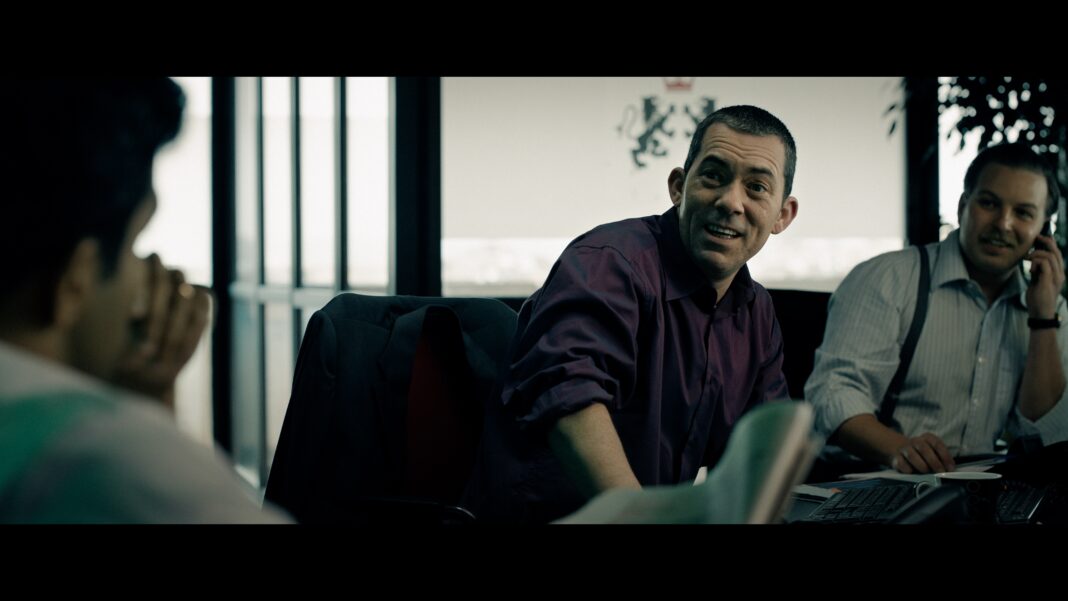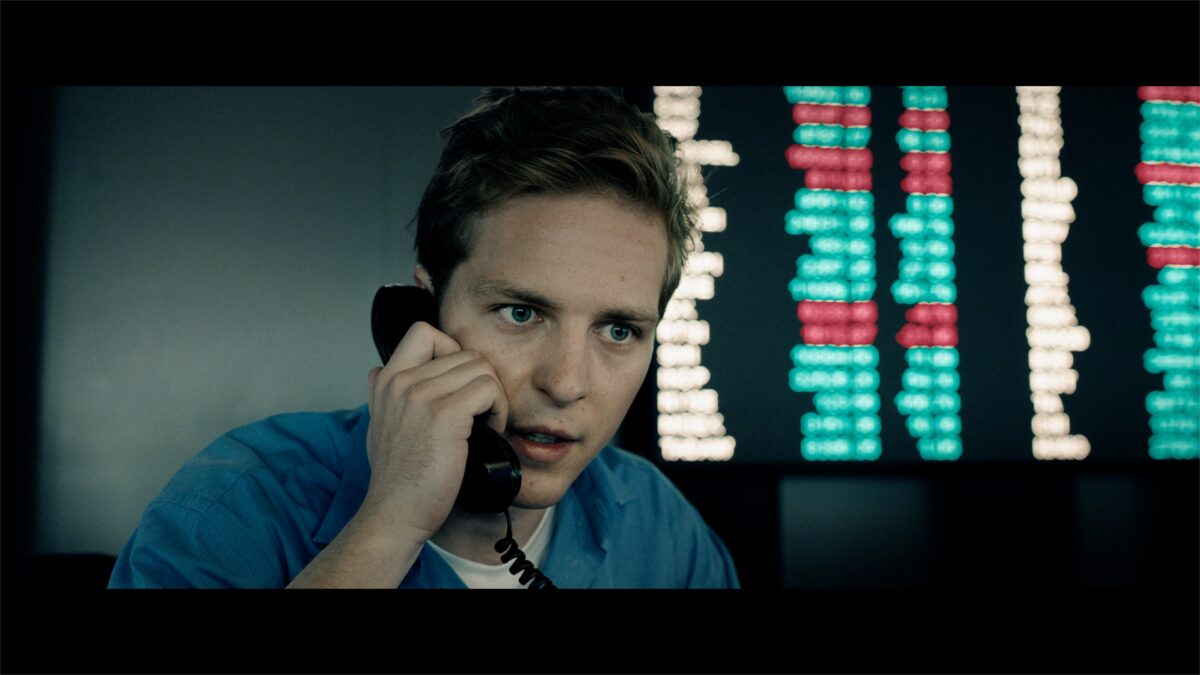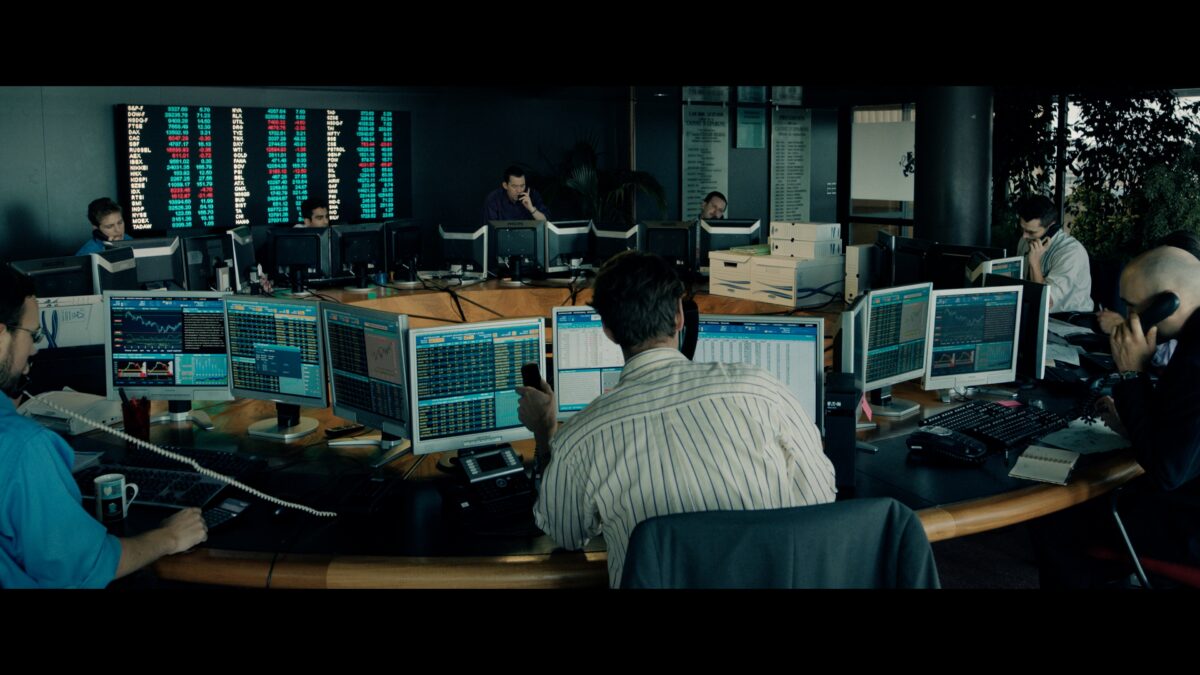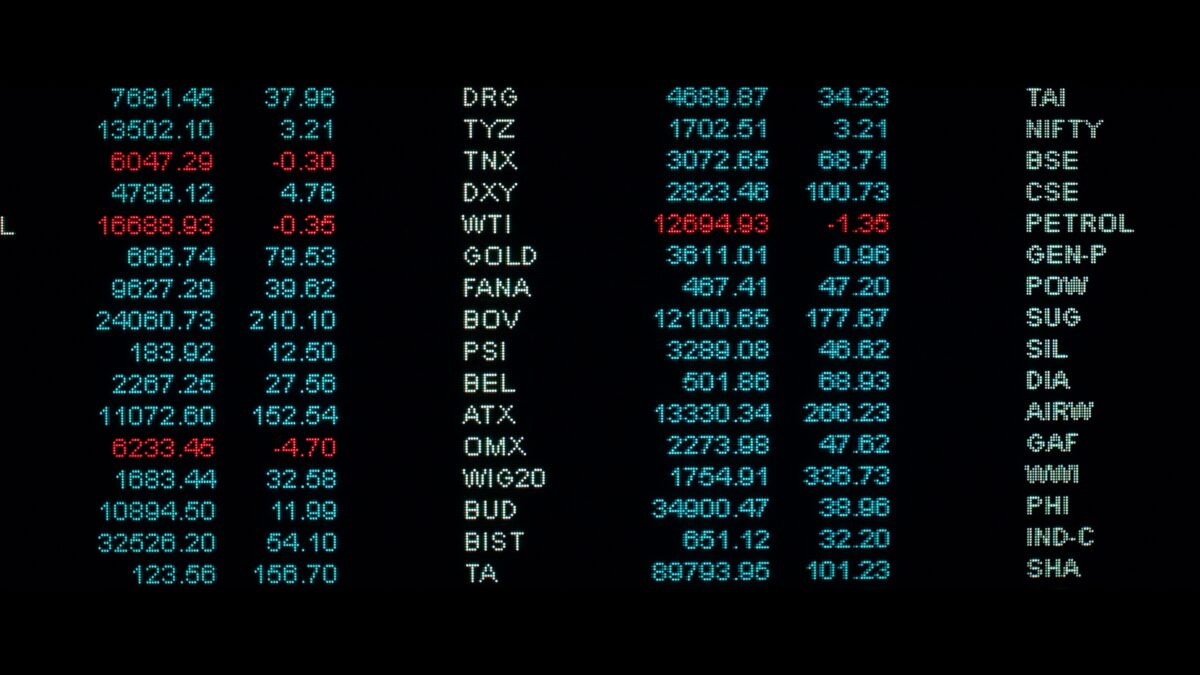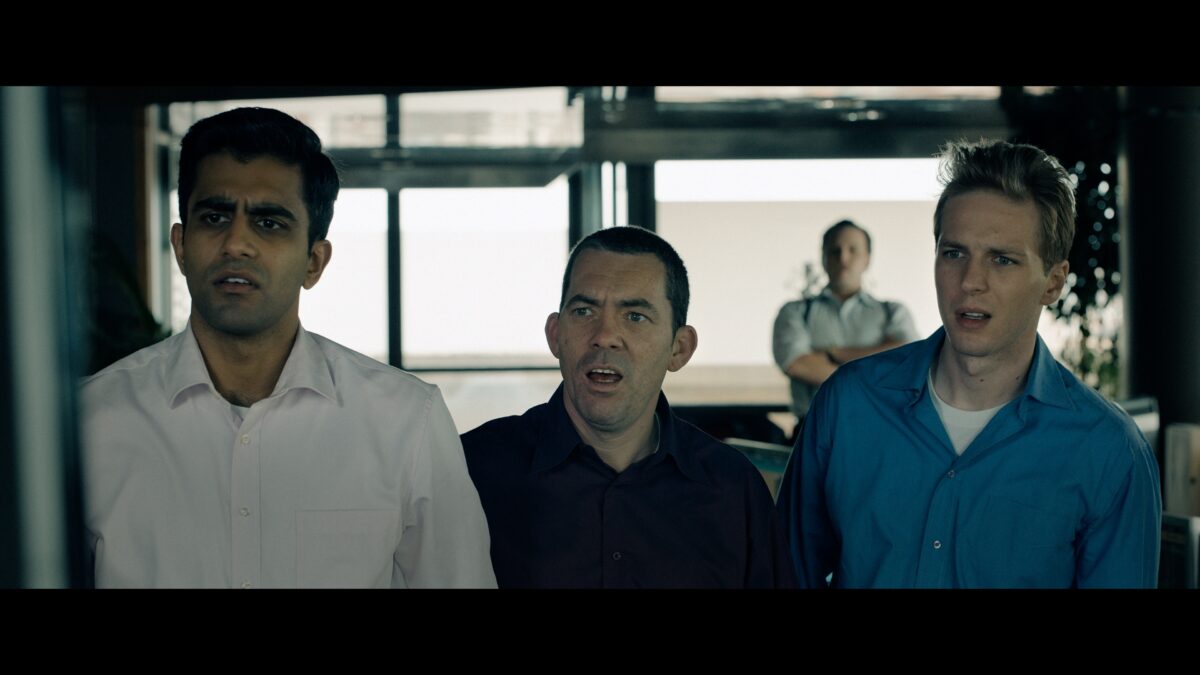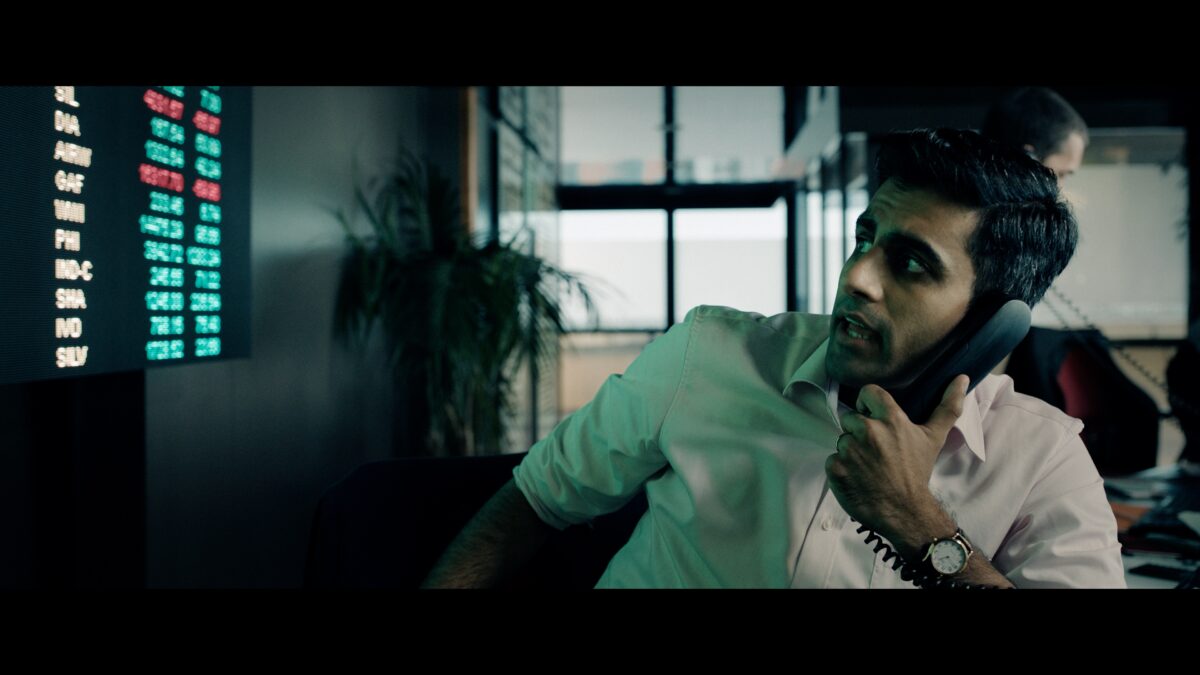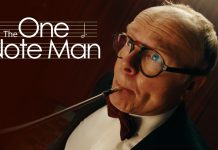Emmanuel Tenenbaum taps into the controversial world of market predictions during 9/11 with FREE FALL, based on a true story.
Film And TV Now spoke with the film-maker about the short.
FILM AND TV NOW: The world of markets and their unpredictability has been covered in recent films like MARGIN CALL and partly in the James Bond film CASINO ROYALE (2006). What fascinates you about that world?
EMMANUEL TENENBAUM: The stock market has become a huge part of the economy that we all depend on it. In the US and in Europe, we are incentivized to invest our life savings in stocks, and so many of us are invested.
We trust that this is for the common good, but what very few people realize is that markets are a zero-sum game: if someone wins, someone else has to lose. It is a fact that there are some very big players (the whales) who are working hard on absorbing average people’s money, and they have so much strength that they can dictate – at least temporarily – if we go up or down, making everybody follow them.
In MARGIN CALL, you see how a single investment bank sent the world to hell in order to survive. When you think about it, this is sounds very James-Bond-ish and its probably why film-makers find it fascinating.
FTVN: The film is based on a true story. Tell us more about the source material.
ET: The original story was found in the extraordinary book Swimming with Sharks, by Dutch writer Joris Luyendijk.
After the 2008 crisis, Joris spent two years interviewing bankers in London, and published a blog for the Guardian. He collected extraordinary, often surreal testimonies (on the condition his insiders would stay anonymous). In the book, one trader on a top bank tells us how he found out before anyone else that the first plane in the WTC was a terrorist attack, and how he made an enormous amount of money for his bank.
It was only at the end of the day that he realized he had friends in the towers. During the whole day, he admits not having thought about them a single second… He was so absorbed in the money game, that he totally forgot about them.
FTVN: 9/11 remains so potent twenty years on, with some of those shocking and unforgettable images still part of the world. What are the legal rights in acquiring the old footage and are there any restrictions given the tragedy?
ET: You are pointing towards one of the challenges we faced. Given the historical importance of that day and the fact the film is based on a true story, I wanted to use real live coverage footage from the major US channels. But this is a short film, and we soon had to accept that we could not afford the licensing fees. So we eventually found high quality, alternative footage that was affordable, and that we can use for a number of years.
FTVN: As we watch the story, we are rooting for the lead character to make good, but given the context, we do stop ourselves at some point. Given the sensitivity of the context, what challenges did you encounter writing the script?
ET: As you pointed out, the context is very sensitive. Guillaume Fournier (the screenwriter) and I, had decided that the only way to tell this story right, was to be truthful. We spent an enormous amount of time researching and making sure we were depicting the finance world as it really is.
As for the lead character, we wanted to portray it exactly as you mentioned: a nice guy who’s in deep need for acceptance and recognition, but who could get lost in pursuing it… It is something human we can all relate to, and as an audience we of course hope we’d have done differently, in his situation.
FTVN: Tell us about your cast.
ET: What was incredible about our cast is that all four of them had a different style, and they were so complementary. Abraham Lewis for example, was super instinctive and organic, while Vincent Regan (300) was so experienced he would come in just before his take and deliver it perfectly at once. Packy Lee (Peaky Blinders) had an immense presence on stage, and Bally Gill was super technical and could transform his character in one second. It was a real pleasure working with them.
FTVN: Tell us about your production team.
ET: My producer, Bien ou Bien Productions, is a rising phenomenon in France. One of their early credits was discovering Maimouna Doucouré, a super talented director, and together they made the short film Maman(s) which won TIFF and Sundance.
Zangro, the main producer, has a sort of gift for storytelling: he didn’t have to give us too much guidance on the script, but every time he did, he was spot on.
FTVN: Where did you shoot and for how long?
ET: The film was shot in Bordeaux, France, in a former corporate building, in area.
We had 4 ½ days of shooting, which is not much for a 20 minute film. The anecdote is that the owner of the building, Thierry Fradin, generously let us use the place for free, but there was an old alarm system and we could only enter the building at 8AM and leave at 5PM! Normally on a short film, you shoot 12 hours a a day, so that was quite a challenge!
FTVN: How did you raise finance for the short?
ET: In France, we are extremely fortunate to have access to a large number of cultural funds.
The Région Nouvelle-Aquitaine immediately supported the project. After that it took quite some time to find the rest of the funding and we had to wait for more than a year… Our great luck was that France Televisions jumped on board at the right time, together with the CNC (the French Film Fund).
Finally, a dear friend Arnaud Dreistadt, and my little brother Ruben, were generous enough to support us as well. But the main investment is from the crew, they all brought their time and skills for almost nothing, and it would never have been possible to make that film without such generosity.
FTVN: You have been working with Quebec writer Guillaume Fournier over a number of years. Tell us about your collaboration and what makes him such a great writer?
ET: Guillaume and I met in a Kinomada lab (an event in Quebec City where people join forces for 10 days and create shorts in a collaborative way). I told him about my idea, we had a chat, and half a day later, he handed me over a script: I was blown away!
It was absolutely perfect, and a few days later, Sans Plomb was born. After that, we kept collaborating and we made Two Dollars, which went to 90 festivals and was a Vimeo Best of the Year nominee. Guillaume and I are very close friends, and we chat about everything until we find an idea that we both love enough to invest years of our lives in.
I think what makes him such a great writer is that he is extremely organic: his writing feels real, his dialogues have subtext, he understands plotting very well. On top of this, the fact he’s from Quebec which puts him at the crossroads between American & European storytelling, which makes a great blend.
FTVN: The pair of you are about to embark on your first feature film. Tell us more about it and when can we expect to see it on screen?
ET: It is still a bit early to give you a definitive answer, as we’re still exploring various ideas, but one thing we are sure about is that we will continue to talk about greed and what it can do to us. (If you know where to find Gordon Gecko, we’d love to interview him ha ha). Ideally, we’d like to come back to a more humorous tone, as it was the case with our former shorts.
FTVN: The film is a selection in several festivals. How has the circuit helped a film-maker like yourself in recent months?
ET: This year has been pretty strange given the number of festivals that are either online or that we’re not allowed to attend.
This being said, I managed to attend a few, and the creative energy you receive there is absolutely fantastic, mostly because you suddenly watch more films you’d watch in a year, and then you have the chance to meet the film-makers and learn from them.
I think this has more value than any award, and this is always the advice I give to beginning film-makers: attend as many festivals as you can!
FTVN: Who are your cinematic influences?
ET: In the last few years, Guillaume and I have been quite influenced by diverse film-makers such as J.C Chandor, Kathryn Bigelow, the Sadie Brothers. But this list could not be complete without the Coen Brothers, Steve McQueen, Jacques Audiard and Guillaume’s idol Aaron Sorkin. By the way, if you ever cross J.C Chandor in the street, please let him know that I’d love to meet him!
FTVN: What issues and themes are you keen to explore in your future work?
ET: Greed as an emotion is the central point of our work. Given my background (I’m a former scientist who worked for a multinational) I am fond of stories that take place in offices. Guillaume is supportive of this and I think we’re still going to make a couple of films about that.
FTVN: How has the global challenge of the last year and a half affected your development and evolution as a film-maker?
ET: We were lucky enough to finish shooting a couple of weeks before the lock-down! But like everyone else, the pandemic has had its toll on our development.
Firstly, I am based in the Netherlands, and Guillaume is in Quebec, so we couldn’t meet for a very long time. Secondly, festivals are/were online, making them often quite unspectacular. Winning an Oscar Qualifying award from your living room is a blend of joy and frustration that I will remember forever!
FTVN: Finally, what are you most proud of about this short?
ET: When the film was released, we didn’t know what to expect of course. One of the first things we noticed it that the film generated a lot of interest amongst banking professionals: apparently, they found it both accurate and confronting. It was important for me because this story, being what it is, had to be told in a truthful way.


